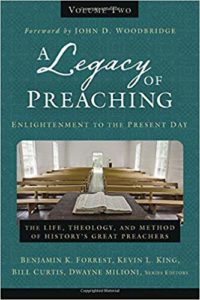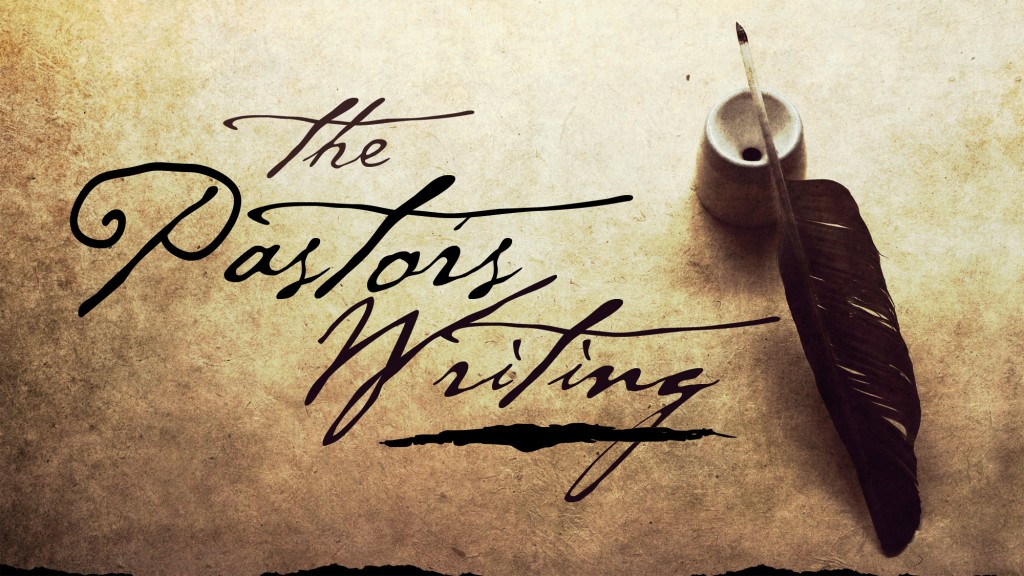Hot off the press today is volume two of Zondervan’s A Legacy of Preaching, which is subtitled, “Enlightenment to the Present Day: The Life, Theology, and Method of History’s Great Preachers.”
I wrote the chapter on Robert Murray M’Cheyne’s preaching. My primary editor, Benjamin Forrest, was a joy to work with; I’m pleased with the chapter’s final form. I hope you’ll grab a copy! All the other chapters I’ve seen are edifying and informative.
Publisher’s Description
 A Legacy of Preaching, Volume Two–Enlightenment to the Present Day explores the history and development of preaching through a biographical and theological examination of its most important preachers. Instead of teaching the history of preaching from the perspective of movements and eras, each contributor tells the story of a particular preacher in history, allowing these preachers from the past to come alive and instruct us through their lives, theologies, and methods of preaching.
A Legacy of Preaching, Volume Two–Enlightenment to the Present Day explores the history and development of preaching through a biographical and theological examination of its most important preachers. Instead of teaching the history of preaching from the perspective of movements and eras, each contributor tells the story of a particular preacher in history, allowing these preachers from the past to come alive and instruct us through their lives, theologies, and methods of preaching.
Each chapter introduces readers to a key figure in the history of preaching, followed by an analysis of the theological views that shaped their preaching, their methodology of sermon preparation and delivery, and an appraisal of the significant contributions they have made to the history of preaching. This diverse collection of familiar and lesser-known individuals provides a detailed and fascinating look at what it has meant to communicate the gospel over the past two thousand years. By looking at how the gospel has been communicated over time and across different cultures, pastors, scholars, and homiletics students can enrich their own understanding and practice of preaching for application today.
Volume Two covers the period from the Enlightenment to the present day and profiles thirty-one preachers including Charles Haddon Spurgeon, D. L. Moody, Billy Sunday, Karl Barth, D. Martyn Lloyd-Jones, John Stott, Harry Emerson Fosdick, Martin Luther King Jr., Billy Graham, and more.
Volume One, available separately, covers the period from the apostles to the Puritans and profiles thirty preachers including Paul, Origen of Alexandria, Augustine of Hippo, Francis of Assisi, Martin Luther, Jonathan Edwards, John Wesley, George Whitefield, and more.
Covering a broad range of preaching over the centuries, the two-volume A Legacy of Preaching reference set is the definitive reference for experienced preachers who wish to deeper their own preaching as well as aspiring students who want to learn from the masters of the past.

